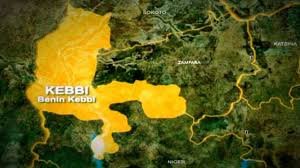The African continent is on the brink of declaring a Public Health Emergency of Continental Security (PHECS) as Mpox cases surge across the region.
Jean Kaseya, Director General of the Africa Centre for Disease Control (CDC), announced this development during a webinar on Thursday, highlighting the urgent need for a coordinated response to contain the outbreak.
Kaseya stated, “Mpox is the reality, and Africans are dying, wee are taking decisive actions to protect our people. Next week, more likely, we will declare the PHECS.”
Since January 2022, Africa has recorded 38,465 Mpox cases and 1,456 deaths, with a staggering 160 percent increase in cases in 2024 compared to the previous year. The outbreak has affected all five regions of the continent and spread to 16 countries, including new cases in Côte d’Ivoire, Kenya, and Uganda.
According to World Health Organization, Mpox (monkeypox) is a viral illness caused by the monkeypox virus, a species of the genus Orthopoxvirus.
Common symptoms of mpox are a skin rash or mucosal lesions which can last 2–4 weeks accompanied by fever, headache, muscle aches, back pain, low energy, and swollen lymph nodes.
Mpox can be transmitted to humans through physical contact with someone who is infectious, with contaminated materials, or with infected animals.
In 2022–2023 a global outbreak of mpox was caused by a strain known as clade IIb.
Mpox can be prevented by avoiding physical contact with someone who has mpox. Vaccination can help prevent infection for people at risk.
The World Health Organization (WHO) and other health bodies renamed the disease to “Mpox” in 2022 to reduce stigma and discrimination associated with the original name.
Kaseya emphasized the urgent need for a coordinated response to contain the disease. “This call for youths’ involvement is vital to harnessing their energy and innovation in combating the spread of the virus,” he said.
He added, “This will help us to have an appropriate response, to help stop this outbreak, and also reinforce the health system in Africa.”
The Explainer gathered that the declaration of a PHECS is expected to mobilize resources, streamline cross-border responses, and strengthen the continent’s health systems against the outbreak.
It would facilitate the rapid deployment of medical supplies, enhance information sharing, and improve the overall resilience of public health systems across Africa.
The global community is closely monitoring these developments, recognizing that Africa’s response to the Mpox outbreak will have far-reaching implications for public health security both on the continent and worldwide.
Kaseya highlighted specific case studies from affected countries. In Côte d’Ivoire, the Ministry of Health declared its first Mpox outbreak, involving a 46-year-old agricultural worker and a 20-year-old student, both from Abidjan.
Kenya reported its first case in a 42-year-old long-distance truck driver at the Taita Taveta point of entry on the Kenya-Tanzania border. Uganda identified two female cases in the Kasese district, both imported from the Democratic Republic of Congo (DRC).
The Africa CDC director noted that Mpox poses a high risk due to its 3.2 percent case fatality rate, with children under 15 being the most affected demographic group.
This potential declaration comes nearly two years after the WHO declared monkeypox a Public Health Emergency of International Concern (PHEIC) on July 23, 2022. Notably, Africa has been struggling with the disease since the 1970s.


























